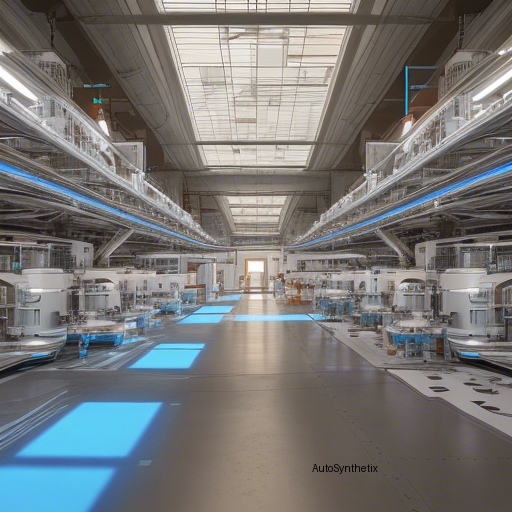Introduction
Artificial intelligence (AI), once confined to the realms of science fiction, now permeates various facets of our daily lives - transforming industries, streamlining processes, and empowering individuals across the globe. A testament to its versatile nature lies within two seemingly disparate yet rapidly evolving fields - manufacturing and healthcare. As unveiled in a recent arXiv study, researchers delve into the myriad ways artificial intelligence impacts both sectors through a unique 'chemistry' and 'engineering' lens. Let us explore their findings concerning advancements in battery technology, flow chemistry, additive manufacturing, sensors, medical vision, diagnosis, protein design, drug discovery, as well as associated challenges such as data privacy, explainability, and secure implementation.
Manufacturing Industry Applications
1. **Batteries**: Innovative AI strategies optimize lithium-ion batteries' performance, lifecycle, safety parameters, and cost efficiency, paving the way towards improved energy storage solutions crucial for modern society's sustainable growth ambitions.
2. **Chemistry & Automation**: By integrating automation techniques with advanced computations, complex chemical synthesis pathways can now be navigated efficiently, accelerating the pace of scientific discoveries significantly while minimizing human error risks.
3. **Additive Manufacturing**: Leveraging generative designs enabled by AI, intricate three-dimensional structures become feasible, revolutionizing prototyping speed, customization potential, material utilization optimization, ultimately driving down production costs overall.
4. **Sensors**: Smart sensory networks powered by deep neural nets promise early warnings of equipment malfunction, process deviation, enabling preventive measures before any substantial damage occurs - a vital step towards predictive maintenance dominion.
5. **Machine Vision**: From quality control inspections on assembly lines to identifying defects microscopic in scale, AI-driven image processing tools have redefined precision and accuracy benchmarks heretofore unknown in industrial settings. Notably, subsections dedicated to "Microscopy Data" elucidate how convolutional neural network architectures excel in interpreting high dimensional optical imagery datasets, further solidifying the symbiotic relationship between optofluidics, photonics, and machine learning technologies.
Healthcare Industry Applications
1. **Medical Vision**: Employing state-of-the-art visual recognition models, radiologists receive augmented support in diagnosing diseases like never before – reducing misdiagnoses rates substantially, improving patient outcomes worldwide.
2. **Diagnosis**: Integration of clinical decision support systems bolsters physicians' diagnostic acumen exponentially, ensuring evidence-based treatment protocol adherence for optimal therapeutic success probabilites.
3. **Protein Design**: Molecular dynamics simulations paired with reinforcement learning methods open doors to rationally designed proteins tailor-made per specific tasks, propelling biotechnological breakthroughs forward.
4. **Drug Discovery**: Structure-activity relationships analysis coupled with virtual compound libraries expedite the identification phase of novel pharmaceuticals, slashing timeframes traditionally required for experimental trials drastically.
Concluding Remarks
The ongoing evolution of AI in tandem with advances made in diverse disciplines promises nothing short of a paradigm shift - resculpting traditional industry landscapes, pushing humanity closer toward realizing a smarter, healthier tomorrow. However, as highlighted throughout the report, concerns surrounding ethically responsible development, transparency assurances, cybersecurity standards remain paramount considerations when deploying intelligent machines into critical infrastructure environments. Balancing technological progress against societal welfare necessitates collaborative efforts spanning government bodies, academic institutions, private enterprises, and most importantly, global citizens committed to harnessing innovation responsibly.
Source arXiv: http://arxiv.org/abs/2405.01520v1
